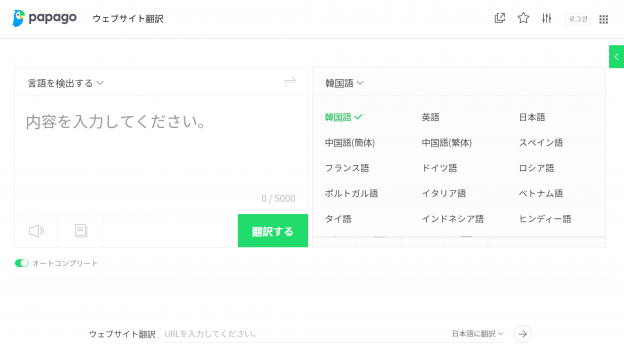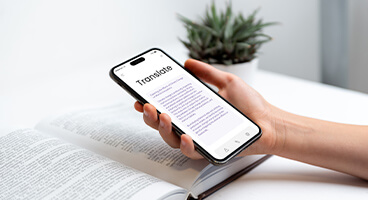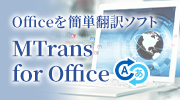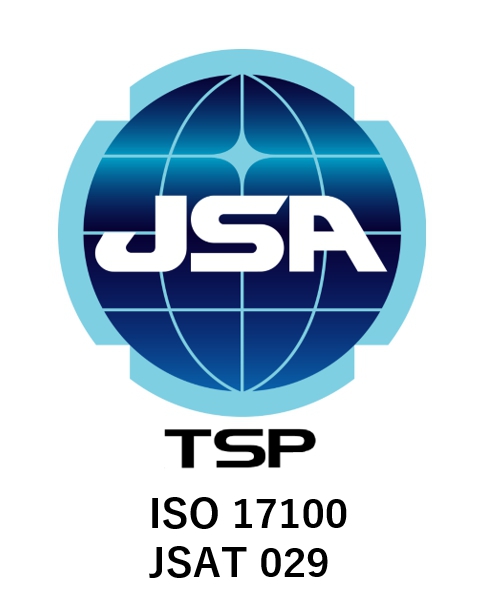
The automatic translation service DeepL, provided by DeepL SE, is reputed for its high translation accuracy.
Human Science also has an eye on DeepL, and the following article explains our observations on the quality and implementation methods.
In previous articles, we have described DeepL's high quality when it comes to business emails and medical translations.
"How Accurate Are DeepL Translations? Comparison with Google and Microsoft for Business Emails"
"How to Implement DeepL Automatic Translation Services in Your Business"
In this post, we focus on DeepL's confidentiality and security, with references to the "DeepL Privacy Policy". This information is accurate as of the time of writing, referring to the latest DeepL version updated in April 2021.
- Table of Contents
-
- 1. What is DeepL Translation?
- 1-1. Machine translation services with Japanese support since 2020
- 1-2. Translatable languages
- 1-3. What is the new "Clarify" feature?
- 2. Benefits and Precautions of Machine Translation
- 2-1. Benefits of using machine translation in business
- 2-2. Machine translation precautions
- 3. DeepL Security
- 4. How to Use DeepL Pro
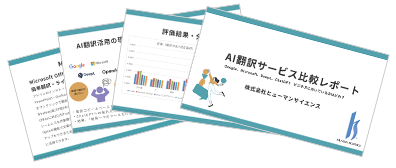
1. What is DeepL Translation?
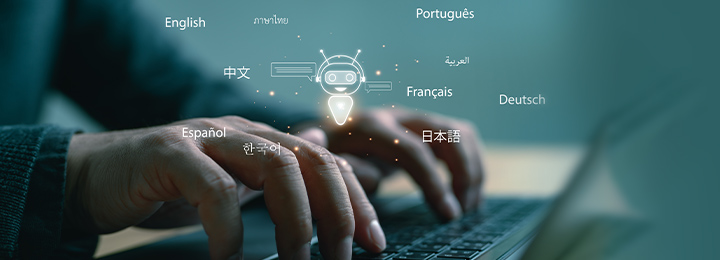
1-1. Machine translation services with Japanese support since 2020
DeepL Translation is a machine translation service that was developed by the German-based company DeepL SE in 2017. In 2020, Japanese language support was added, leading to its widespread use in Japan. The company's predecessor, Linguee, previously offered an online dictionary service. By utilizing the high-quality data they aggregated over the years, DeepL Translation now provides what many consider the most natural and highly accurate automatic translations in the machine translation service industry.
1-2. Translatable languages
As of May 2025, DeepL Translator supports 35 languages. It covers languages from not only Western countries, but major regions around the world, making it sufficient for general business use. In recent years, the number of supported Asian languages has increased, and it currently supports Japanese, Chinese (Simplified and Traditional), Korean, and Indonesian.
1-3. What is the new "Clarify" feature?
In March 2025, DeepL released a new feature called "Clarify." This feature utilizes the latest large language model technology to provide an AI assistant that makes translations easier to use and more accurate.
A key feature of Clarify is that it allows users to interact during translation and clarify ambiguous passages. For example, the AI may ask questions about words with multiple meanings, gender distinctions, proper names, numerical expressions, idioms, cultural differences, abbreviations, technical terms, and so on. By answering these questions, users can obtain more accurate translation results.
This feature enables even those who are not familiar with the target language to translate subtle nuances accurately and significantly improve the precision of the translations produced, especially for work purposes.
As of now, Clarify is available to DeepL Pro plan users and can be used for translations between English and German.
2. Benefits and Precautions of Machine Translation

The following sections introduce the benefits and precautions associated with using machine translation.
2-1. Benefits of using machine translation in business
・Cost reduction
When there is no need to outsource translation work, the cost is usually cheaper. Lately, many companies offer free machine translation services, which reduces labor costs. Although, if you want to output more accurate translations and enjoy more comprehensive services than those provided by the free versions, implementing a paid version can also be an option.
・Immediate translation turnaround
Machine translation has the advantage of being faster than human translation. While a human translator can handle approximately 1,500 to 2,500 words per day, machine translation can handle the same text in a matter of seconds. Since the translation results can be checked immediately, it can be used to translate urgent documents, too.
2-2. Machine translation precautions
・Clarify the subject of the sentence before translating.
When translating from Japanese to a foreign language, the writer must clarify the subject of the original sentence beforehand. Compared to other languages, Japanese often implies meaning through context, without explicitly naming the subject. Unfortunately, if you translate into another language without specifying the subject, there is a high risk that the intended meaning of the sentence will be changed. So, to reduce mistranslations and revision time, be sure to clarify the subject before translating.
・Ensure that security is fully guaranteed.
Depending on the service used, free versions of machine translation may not provide comprehensive security. You must be wary of whether the translated text data remains on the service provider's servers and whether the information could potentially get leaked. As a preventive measure, switching to a paid version of the translation service during the period of use could be an option. When selecting a machine translation service for business use, carefully consider which services maintain high confidentiality.
3. DeepL Security

It is important to always consider security aspects when implementing new software and services.
Many automatic translation services are available for free on the internet, but most free services do not guarantee confidentiality. DeepL is no exception.
First, take note that there are two types of services offered by DeepL.
The following is a description of DeepL Translation taken from their website.
"Processing of the submitted Content
When using our Free Services, we reserve the right to process the content you upload (e.g., your texts and documents) and its translation/improvement for a limited period of time to train and improve our neural networks and algorithms. This also applies to adjustments and corrections you make to our translation or improvement suggestions. If you use the glossary feature and enter certain pairs of terms there, this data is only stored locally. Therefore, you cannot use your glossary entries in another browser or on another device.
"We reserve the right to transfer your content to servers of third parties in order to provide our services. These third parties are our data processors and we have concluded a data processing agreement with them so that they may only process the data according to our instructions and not for their own purposes.
"Please note that you may not use the Free Services for processing content containing confidential or personal data of any kind. In this context, personal data means any information relating to an identified or identifiable natural person. The provision of content containing confidential and/or personal data is only allowed within a DeepL Pro subscription."
(https://www.deepl.com/en/terms-of-use)
The ToS state that the entered text and documents may be used to improve DeepL's services. It is clear that using DeepL Translation for business documents that contain confidential information poses a significant issue.
For contrast here is the company's description regarding DeepL Pro.
"3.1.2 DeepL will only temporarily store Content or Processed Content to the extent technically required to provide its Services. Any further storage of Content or Processed Content will only be carried out at Customer’s request, e.g. by using the "saved translations" feature. [...] For the avoidance of doubt, DeepL shall be entitled to create and retain access logs for billing, security and statistical purposes. Such access logs shall not contain any Content or Processed Content. However, access logs may contain meta data of API Requests such as time of the API Request and size of the transmitted Content."
(https://www.deepl.com/en/pro-license)
The following description regarding security also appears.
"The exchange of data between customers and DeepL servers is carried out via state-of-the-art encrypted Internet connections." (https://deepl.safebase.us/?itemName=data_security&source=click&itemUid=4ea65d1e-79fb-47cf-95a8-bdb24d2d6a4b)
So, as you can see, communications are encrypted to ensure secrecy.
By using DeepL Pro, as stated above, " DeepL will only temporarily store Content or Processed Content to the extent technically required to provide its Services," meaning that your data is on the server only for a short while. This guarantees confidentiality both during transmission and on the server.
Regarding DeepL Pro's privacy policy, DeepL has another separate page titled "Secure and compliant Language AI for business communication" (https://www.deepl.com/en/pro-data-security), which states the following.
"Texts are never stored or used for model training without your consent."
To reiterate DeepL's personal data protection policy, it clearly states that text is not stored when using DeepL Pro.
Therefore, when translating business documents that contain confidential information, using DeepL Pro is essential.
Related Blog Posts
How to Implement DeepL Automatic Translation Services in Your Business
How Accurate Are DeepL Translations? Comparison with Google and Microsoft for Business Emails
Is Automatic Translation Secure?
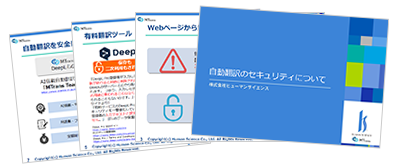
4. How to Use DeepL Pro

You can either contract with DeepL to utilize DeepL Pro or introduce an automatic translation tool that is linked with DeepL Pro.
With the AI-powered translation software "MTrans for Office," which integrates DeepL, you can rely on API connection to utilize DeepL without the risk of information leaks.
It also incorporates the AI model from OpenAI, the provider of ChatGPT, allowing features such as writing assistance and proofreading, in addition to translation.
See for yourself and test the service quality and ease of use with a free 14-day trial.

Features of MTrans for Office
- ① Unlimited number of file translations and glossary integration for a fixed fee
- ② One-click translation from Office products!
- ③ Secure API connection
・For customers who want further security enhancement, we also offer SSO, IP restrictions, and so on. - ④ Japanese language support by a Japanese company
・Response to security check sheets
・Payment by bank transfer available
MTrans for Office is an easy-to-use translation software for Office.















